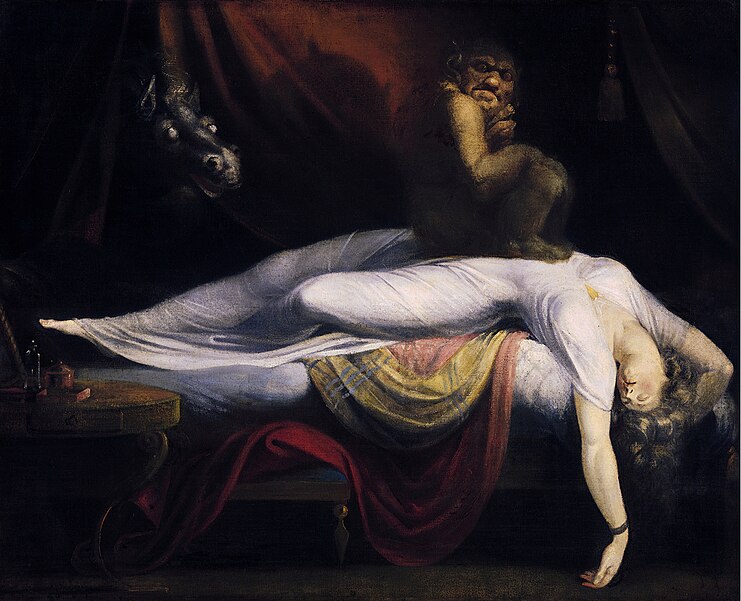Sometimes just before you fall asleep, or just after you wake up, it is impossible to move any muscles. The panic caused by this sudden paralysis is soon followed by a sense of impending doom and unknown horror. When trying to look around to figure out what is happening, you see a ghost or demon sitting on your chest, pinning you down.
This is a typical scenario of sleep paralysis. It occurs when the mind wakes up before the body (in loose terms) and is experienced by everyone at least once throughout their life.
Sleep is divided into two phases: REM (rapid eye movement) sleep and non-REM sleep. These two phases cycle to make up sleep at a 1:3 ratio (i.e. about 90 minutes non-REM, 30 minutes REM, repeat). NREM sleep is often thought of as “shallow sleep”, but this is incorrect as the third phase of NREM is literally “deep sleep”. This is followed by REM sleep, characterised by relaxation of muscle tone and the eyes darting in all directions (rapid eye movements). The brain cuts off motor signals to the body during REM sleep to prevent it acting out the movements in a dream (without this, many people would injure themselves or others during sleep). For example, patients suffering from diseases such as Parkinson’s disease with REM sleep disorder show vigorous movements during sleep, often hitting their partners in the process.
The problem occurs when the onset of REM atonia (relaxation) comes before the person fully falls asleep, or fails to disappear after waking up. As the motor system has been shut down, the muscles cannot be moved yet the person has regained consciousness. The more frightening thing is that sleep paralysis is usually accompanied by an intense visual and auditory hallucination, which is almost always related the person’s worst nightmares and fears. This explains why so many cultures associate it with demons and ghosts, and it is also possibly the cause of alien abduction experiences and ghost sightings. Reason being, the hallucination is so vivid the person easily believes that it actually happened.
Sleep paralysis can be caused by excessive drinking, stress or the induction of lucid dreams, but tend to be spontaneous and can happen to you on any day.

